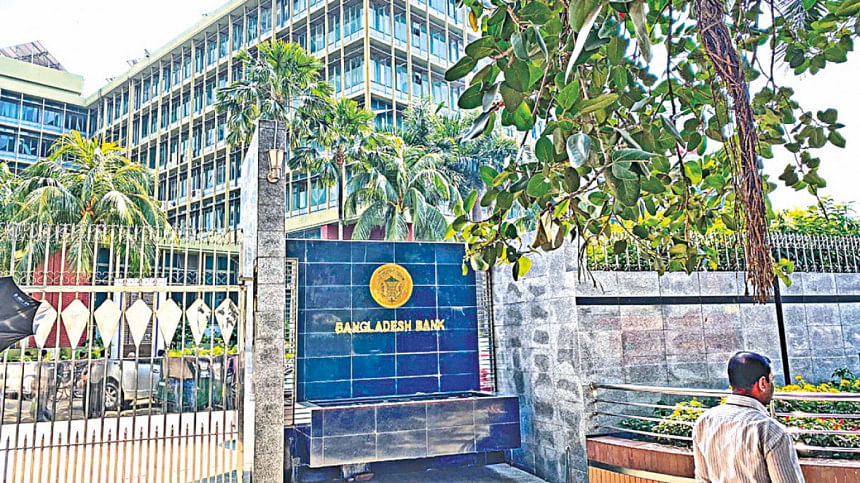Banking sector’s ills: Now what as BB hits the nail on the head?

For the first time, the central bank has published full-fledged data on stressed assets of banks, laying bare the sector's deep ills that have been a subject in the public discourse for long as irregularities and scams often make headlines.
In the past, the Bangladesh Bank would publish partial figures on distressed assets and the latest data came as part of conditions attached to the International Monetary Fund's $4.7 billion loan.
The distressed asset of the banking industry stood at Tk 3,77,922 crore at the end of last year, according to BB's Financial Stability Report 2022, which was released on Sunday.
The distressed assets were calculated considering the total non-performing loans (NPLs), outstanding rescheduled and written-off loans.
In 2022, NPLs in the sector stood at Tk 120,649 crore, the outstanding rescheduled loans were Tk 212,780 crore and the outstanding written-off loans amounted to Tk 44,493 crore.
Until 2021, the BB disclosed the rescheduled loans and written-off loans in different forms and partially in its Financial Stability Report. This time, the regulator has portrayed the total scenario of rescheduled loans and written-off loans, said a senior official of the BB.
The central banker said loan rescheduling is a standard practice in the global banking sector and all the rescheduled loans are not classified. Some 2 percent to 3 percent of such loans are classified, so it is not concerning, he said.
Bankers disagreed, saying the rescheduled loans are not a good thing for banks and they are a burden.
They, however, welcomed the report since it has almost recognised the actual problem of the banking sector.
"The distressed assets or loans whether they are in the form of NPLs, rescheduled loans or write-off loans are not good for banks," said Anis A Khan, a former chairman of the Association of Bankers, Bangladesh, a platform of chief executives of banks.
"Stressed assets widen risks at banks and adversely affect their capital adequacy ratio and provisioning. When stressed assets go up, their financial health worsens."
The former managing director of Mutual Trust Bank says since the actual scenario of the banking sector has been recognised thanks to the IMF, the industry is now on the right track.
The BB report said that banks rescheduled a record Tk 63,720 crore last year.
A senior official of the central bank, seeking anonymity, says not only rescheduled and write-off loans, almost all the indicators of the banking sector reflect the deep crisis confronting the industry.
The NPLs stood at Tk 120,649 crore at the end of 2022 as per official data, but the actual figure is much higher since most banks don't furnish the BB with the actual data, he said.
Syed Mahbubur Rahman, managing director of Mutual Trust Bank, describes the outstanding rescheduled loans of Tk 212,780 crore as a matter of concern.
"Some of the rescheduled loans might not come back to banks because of the wrong decision made while approving loans in the first place."
"We all have to work jointly to speed up the loan recovery. Otherwise, the situation in the banking sector will not improve."
Rahman urged banks to bring down the volume of rescheduled loans using legal procedures.
However, Anis A Khan said data provided by banks is mostly accurate because of the regulator's supervision.
"But some bad loans are restructured for the sake of the country. This is because when the NPL ratio increases, foreign banks charge higher while providing services to local lenders."
Muinul Islam, a former economics professor at the University of Chittagong, said the condition of the banking sector has kept worsening.
"The central bank will have to take strict measures for the betterment of the sector."
Mamun Rashid, a former country chief of Citibank NA Bangladesh, termed the situation in the banking sector concerning.
"Good banks are finding it increasingly difficult to separate good borrowers from bad ones. And added to this is the long-pending default cases at courts and insider-lending between directors."

 For all latest news, follow The Daily Star's Google News channel.
For all latest news, follow The Daily Star's Google News channel. 








Comments